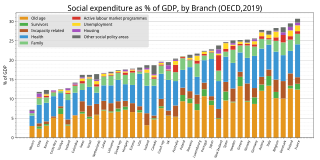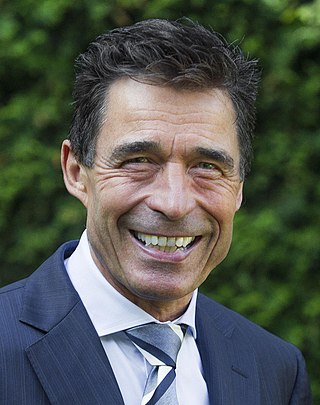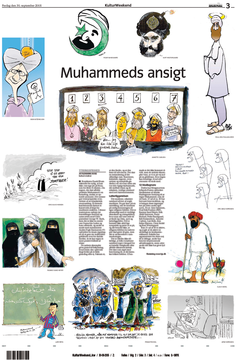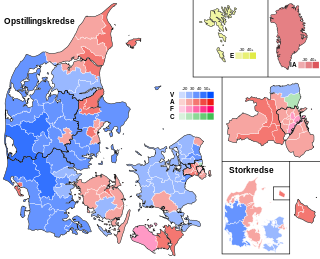
Margaret Hilda Thatcher, Baroness Thatcher, was a British stateswoman and Conservative politician who was Prime Minister of the United Kingdom from 1979 to 1990 and Leader of the Conservative Party from 1975 to 1990. She was the longest-serving British prime minister of the 20th century and the first woman to hold the position. As prime minister, she implemented economic policies known as Thatcherism. A Soviet journalist dubbed her the "Iron Lady", a nickname that became associated with her uncompromising politics and leadership style.

Zakat is one of the five pillars of Islam. Zakat is the Arabic word for "Giving to Charity" or "Giving to the Needy". Zakat is a form of almsgiving, often collected by the Muslim Ummah. It is considered in Islam a religious obligation, and by Quranic ranking, is next after prayer (salat) in importance. Eight heads of zakat are mentioned in the Quran.

Thatcherism is a form of British conservative ideology named after Conservative Party leader Margaret Thatcher that relates to not just her political platform and particular policies but also her personal character and style of management while in office. Proponents of Thatcherism are referred to as Thatcherites. The term has been used to describe the principles of the British government under Thatcher from the 1979 general election to her resignation in 1990. In international terms, Thatcherites have been described as a part of the general socio-economic movement known as neoliberalism, with different countries besides the United Kingdom sharing similar policies around expansionary capitalism.
One-nation conservatism, also known as one-nationism or Tory democracy, is a paternalistic form of British political conservatism. It advocates the preservation of established institutions and traditional principles within a political democracy, in combination with social and economic programmes designed to benefit the ordinary person. According to this political philosophy, society should be allowed to develop in an organic way, rather than being engineered. It argues that members of society have obligations towards each other and particularly emphasises paternalism, meaning that those who are privileged and wealthy should pass on their benefits. It argues that this elite should work to reconcile the interests of all social classes, including labour and management, rather than identifying the good of society solely with the interests of the business class.

A welfare state is a form of government in which the state protects and promotes the economic and social well-being of its citizens, based upon the principles of equal opportunity, equitable distribution of wealth, and public responsibility for citizens unable to avail themselves of the minimal provisions for a good life.

Anders Fogh Rasmussen is a Danish politician who was the 24th Prime Minister of Denmark from November 2001 to April 2009 and the 12th Secretary General of NATO from August 2009 to October 2014. He became founder of political consultancy Rasmussen Global and founded the Alliance of Democracies Foundation. He serves as a senior adviser to Citigroup. He also served as a senior advisor at The Boston Consulting Group.

Venstre, full name Venstre, Danmarks Liberale Parti, is a conservative-liberal, agrarian political party in Denmark. Founded as part of a peasants' movement against the landed aristocracy, today it espouses an economically liberal, pro-free-market ideology.
The Social Democrats is a social democratic political party in Denmark. A member of the Party of European Socialists, the Social Democrats have 50 out of 179 members of the Danish parliament, Folketing, and three out of fourteen MEPs elected from Denmark.
The Red–Green Alliance or Unity List is an eco-socialist political party in Denmark. It was founded in 1989 with the merger of three Marxist parties and it is the most left-wing party in the Folketing, where it advocates for the expansion of the welfare state and social justice as well as the socialist transformation of Denmark and the entire globe. During the 2021 Copenhagen City Council election the party placed first, with 24.6% of the votes. The party is also active in various trade unions within Denmark.

Anker Henrik Jørgensen was a Danish politician who served at various times as Prime Minister and Foreign Minister of Denmark. Between 1972 and 1982 he led five cabinets as prime minister. Jørgensen was president of the Nordic Council in 1986 and 1991.

General elections were held in Denmark on 8 February 2005. Prime Minister Anders Fogh Rasmussen's Venstre remained the largest party in the Folketing and his governing coalition with the Conservative People's Party remained intact, with the Danish People's Party providing the parliamentary support needed for the minority government. The Danish Social Liberal Party made the biggest gains of any party, although it remained outside the governing group of parties. The elections marked the second time in a row that the Social Democrats were not the largest party in parliament, a change from most of the 20th century. The Social Democrats lost five seats and leader Mogens Lykketoft resigned immediately after the elections. Voter turnout was 85% in Denmark proper, 73% in the Faroe Islands and 59% in Greenland.

Helle Thorning-Schmidt is a Danish retired politician who served as the 26th Prime Minister of Denmark from 2011 to 2015, and Leader of the Social Democrats from 2005 to 2015. She is the first woman to have held each post. Following defeat in 2015, she announced that she would step down as both Danish Prime Minister and Social Democratic party leader. Ending her political career in April 2016, she was the chief executive of the NGO Save the Children until June 2019.

The Jyllands-Posten Muhammad cartoons controversy began after the Danish newspaper Jyllands-Posten published 12 editorial cartoons on 30 September 2005, most of which depicted Muhammad, a principal figure of the religion of Islam. The newspaper announced that this was an attempt to contribute to the debate about criticism of Islam and self-censorship. Muslim groups in Denmark complained, and the issue eventually led to protests around the world, including violence and riots in some Muslim countries.
The Liberal Alliance is a classical liberal and right-libertarian political party in Denmark. The party is a component of the centre-right bloc in Danish politics. The party's platform is based upon economic liberalism, promotion of tax cuts and reduction of welfare programmes, and a critical, oppositional stance towards European integration.

General elections were held in Denmark on 13 November 2007. The elections allowed prime minister Anders Fogh Rasmussen to continue for a third term in a coalition government consisting of Venstre and the Conservative People's Party with parliamentary support from the Danish People's Party. They were the first elections held using the current constituencies.

The Nordic model comprises the economic and social policies as well as typical cultural practices common in the Nordic countries. This includes a comprehensive welfare state and multi-level collective bargaining based on the economic foundations of social corporatism, and a commitment to private ownership within a market-based mixed economy – with Norway being a partial exception due to a large number of state-owned enterprises and state ownership in publicly listed firms.
In the history of economic thought, ancient economic thought refers to the ideas from people before the Middle Ages.

Lars Løkke Rasmussen is a Danish politician who has served as Minister of Foreign Affairs since 2022. He previously served as the 25th Prime Minister of Denmark from 2009 to 2011 and again from 2015 to 2019. He was the leader of the liberal Venstre party from 2009 to 2019.
The Special Law of Curvilinear Disparity or May's Law is a theory conceived in 1973 by political scientist John D. May in his publication Opinion Structure of Political Parties. The theory posits that the rank and file members of a political party tend to be more ideologically extreme than both the leadership of that party and its voters. May contends that politically active people can be classified into three major strata or echelons according to their relative status within a party; party elite, middle-elite, and non-elite. Members of each divergent strata have contrasting motivations for being politically active and calibrate their ideological stances to differing extents as a result.
Islamic socialism is a political philosophy that incorporates Islamic principles into socialism. As a term, it was coined by various Muslim leaders to describe a more spiritual form of socialism. Islamic socialists believe that the teachings of the Qur'an and Muhammad—especially the zakat—are not only compatible with principles of socialism, but also very supportive of them. They draw inspiration from the early Medinan welfare state established by Muhammad. Muslim socialists found their roots in anti-imperialism. This can especially be seen in the writings of Salama Moussa, who wrote extensively both about socialism, and about Egyptian nationalism against British rule.













